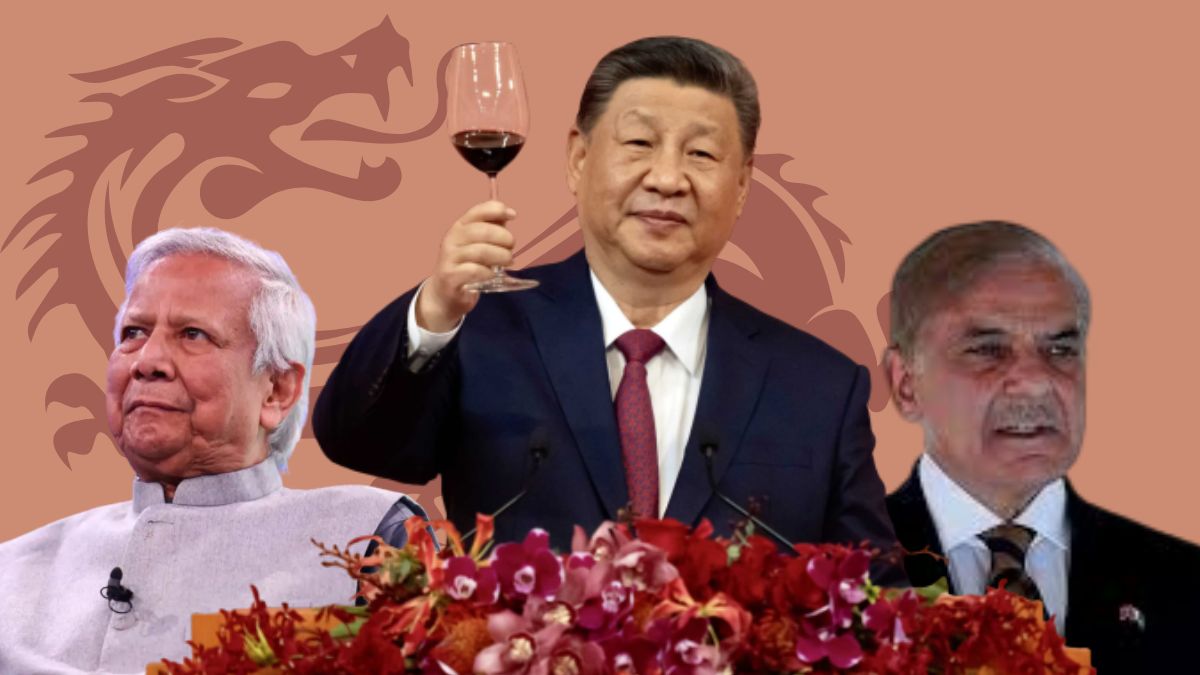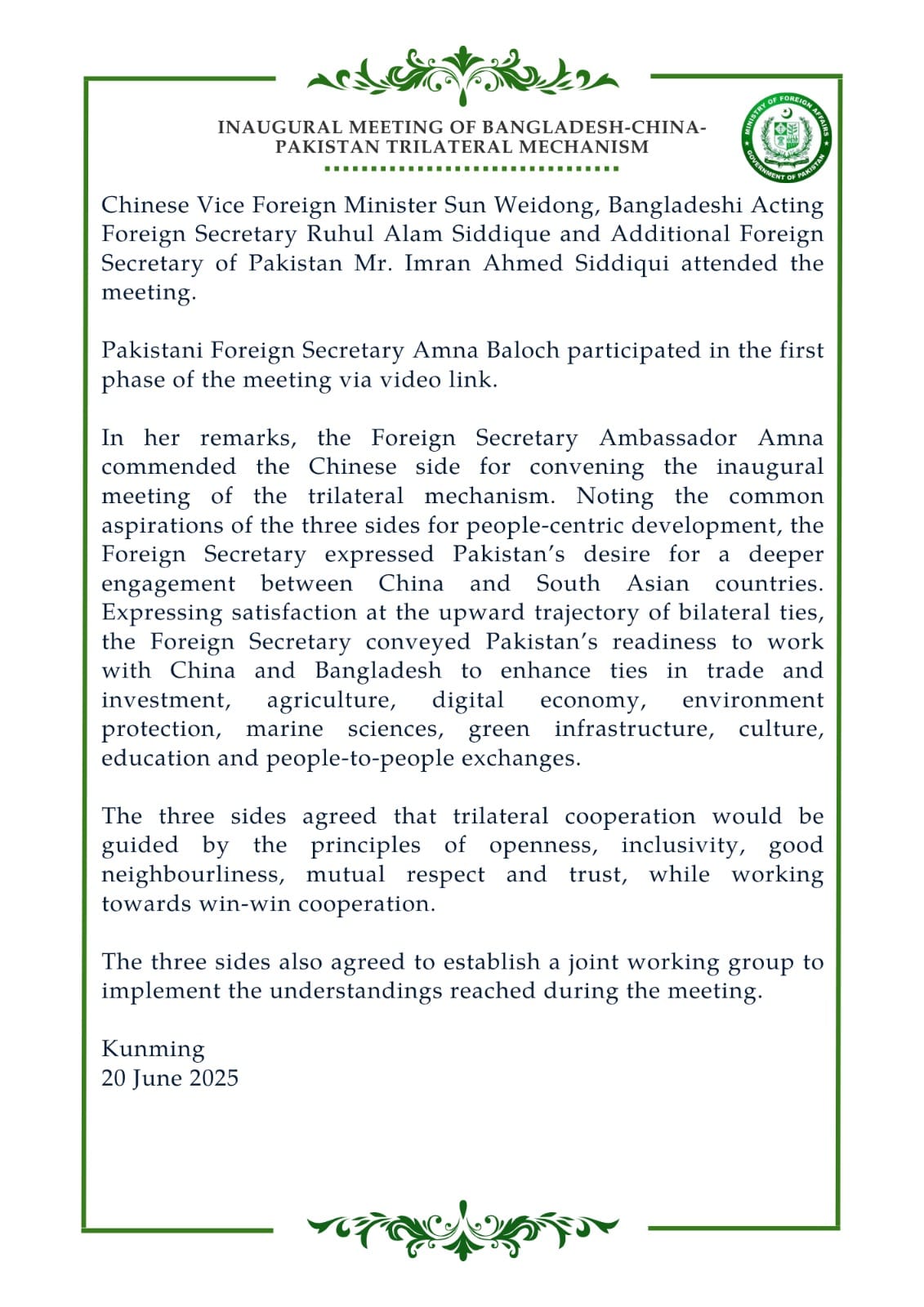First Bangladesh-China-Pakistan Trilateral Meeting Hosted: What Is Beijing Brewing?

The China-Bangladesh-Pakistan trilateral meeting is of great strategic significance to India. Image courtesy: RNA
The first-ever trilateral meeting involving China, Bangladesh, and Pakistan was held in Kunming on Friday (June 20), signalling a new phase of engagement in South Asia. Officials from the three countries emphasized development cooperation, regional connectivity, and people-centric policies, with China taking the lead in convening the dialogue.
Chinese Vice Foreign Minister Sun Weidong chaired the meeting, attended in person by Bangladeshi Acting Foreign Secretary Ruhul Alam Siddique and Additional Foreign Secretary of Pakistan Imran Ahmed Siddiqui. Pakistan’s Foreign Secretary Amna Baloch participated virtually in the first phase.
The meeting could pave the way for closer economic coordination and strategic alignment between China and two key South Asian nations, at a time when Beijing is seeking to reinforce its influence in a region where India has traditionally held sway.
What are the goals of this trilateral mechanism?
Foreign Secretary Amna Baloch, in her remarks, welcomed the initiative and thanked China for hosting the inaugural session. She highlighted Pakistan’s commitment to deeper engagement between China and South Asia and said that Islamabad viewed this trilateral format as a step toward greater regional cohesion.

The discussions focused on a wide array of sectors including trade, investment, agriculture, digital economy, environmental protection, marine sciences, green infrastructure, education, and cultural exchange. Baloch said that Pakistan is ready to partner with China and Bangladesh on shared aspirations for economic development and enhanced people-to-people ties.
The parties agreed that cooperation under this mechanism will be driven by the principles of openness, inclusivity, good neighbourly relations, and mutual trust. Officials expressed satisfaction with the trajectory of bilateral ties and stated their intent to build a win-win cooperation framework.
Why is this trilateral format strategically significant?
The Kunming meeting reflects China’s interest in shaping the regional order in South Asia amid growing India-China friction. Bangladesh’s increasing strategic importance, due to its location and rapid development, has made it a key partner for both Beijing and New Delhi.
For China, this trilateral mechanism could serve as a new channel to integrate its partners more closely under the Belt and Road Initiative (BRI), especially in areas such as cross-border connectivity and infrastructure development. The inclusion of Pakistan, already a central node in the China-Pakistan Economic Corridor (CPEC), further strengthens China’s southwest flank and economic access routes.
From a diplomatic perspective, China’s initiative to bring Dhaka and Islamabad into structured trilateral talks signals an effort to recalibrate power dynamics in South Asia without confronting India directly. This development also gives Bangladesh an expanded role in sub-regional affairs, providing new diplomatic options at a time of increasing competition between major powers.
What will happen next?
The three sides have agreed to establish a joint working group tasked with implementing the understandings reached at the meeting. No formal agreements were signed, but the emphasis on cooperation in strategic sectors suggests that more tangible outcomes could follow.
If institutionalised, the trilateral could evolve into a permanent platform for coordination on regional issues. It may also offer a staging ground for joint projects in economic corridors, energy cooperation, and digital infrastructure that align with China’s global connectivity ambitions.
For now, Kunming has set the tone for what could be a new diplomatic axis in South Asia. Whether it gains traction will depend on how the three countries navigate their respective regional and global relationships.







